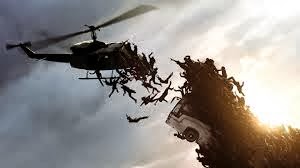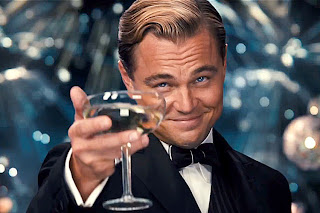"Yeah, she was the whacky cat-lady."
"Didn't she wear all white all the time?"
"She never left her room."
"She was crazy."
Why, gentle reader? Why do we react this way? Why is this the all-the-time response to being presented with Emily Dickinson poetry? Is it merely because no one else lived the way she did? Or that we know so little about all the other poets? Is it something deeper, some humanly natural urge to cast down those things that are not like ourselves, feeling safer inside of our criticism? She's a weirdo, I am not; therefore, I feel good.
Why is Emily Dickinson reduced to her lowest common denominator?
We side-step her with incriminating notions about her craziness. Dickinson lived in her attic, she had a lot of cats, she never got out. Dickinson used a lot of hyphens, too many hyphens.
Too many hyphens??!! Since when did any of us care at all about the number of hyphens used by poets??? Come on, she must be kind of important, sort of regarded. After all, she is one of the seven revolving screen-savers on my Kindle. That must count for something.
Let us not devolve, gentle reader. Let us breathe in:
The Brain—is wider than the Sky—
For—put them side by side—
The one the other will contain
With ease—and You—beside—
The Brain is deeper than the sea—
For—hold them—Blue to Blue—
The one the other will absorb—
As Sponges—Buckets—do—
The Brain is just the weight of God—
For—Heft them—Pound for Pound—
And they will differ—if they do—
As Syllable from Sound—
For—put them side by side—
The one the other will contain
With ease—and You—beside—
The Brain is deeper than the sea—
For—hold them—Blue to Blue—
The one the other will absorb—
As Sponges—Buckets—do—
The Brain is just the weight of God—
For—Heft them—Pound for Pound—
And they will differ—if they do—
As Syllable from Sound—
Do you smell the wisdom? Can you taste the nuance? Don't you sense the truth?
I don't get it either. (All right, maybe I do. At least, perhaps, better than the first-time reader) But "getting it" is not the endgame. We are asking the wrong question when we read a poem and say "So what's it about?"
Because poetry isn't "about" things; instead, let us consider poetry to be a way of things.
A way of seeing, a way of hearing, a way of knowing, of experiencing, of imagining.
Dickinson's assertion in the final stanza that the Brain and God "differ if they do as Syllable from Sound" implies very little difference at all. The difference between the raw, naturalness of sound and its definable segment, the syllable. It is the distance between a thing and itself again, before and just after being named, or categorized, or defined. By us. Our brains have infinite capacity, like God, to contain and absorb and also to define and label. We can allow for unrestrained rawness and in the same breath call it so.
But which is bigger, the Brain or God? Which is better?
I don't know either. Not according to this poem, and not for myself. (All right, maybe I do for myself, but to hint at it here would be to potentially influence your own reading, and that is not what non-doers do) But if I read this again. And maybe again.
And I start to get a sense of things.




